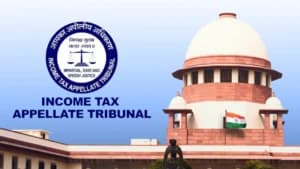In the ongoing Lakhimpur Kheri case, the Supreme Court has granted liberty to a key prosecution witness, who alleged attempts to influence his testimony, to file a formal complaint with the police. The Court emphasized that the complaint should be investigated "dispassionately and uninfluenced by the conclusions drawn earlier by the police in its status report."
Simultaneously, the Court has permitted Ashish Mishra, son of former Union Minister Ajay Kumar Mishra, to visit his hometown, Lakhimpur Kheri, from April 5 to April 7, to be with his family during the Ram Navami festival. This permission is subject to the bail conditions already imposed, along with additional restrictions.
"Petitioner is permitted to visit his hometown of Lakhimpur Kheri on 5th April and celebrate Ram Navami on 6th April strictly with his family members and close relatives. No political workers or public shall be associated with such celebrations. The petitioner shall be required to return to Lucknow on 7th April before 5 PM," the Court ordered.
Read Also:- Supreme Court Seeks FIR Against Justice Yashwant Varma, Challenges Internal Inquiry
Background of the Case
The case stems from the tragic incident in October 2021, when five individuals lost their lives in Lakhimpur Kheri. It was alleged that vehicles in Ashish Mishra’s convoy ran over a group of farmers protesting against the farm laws. Given the political connections—Mishra’s father was a Union Minister at the time—the case drew nationwide attention. The Supreme Court took suo motu cognizance of the incident, criticizing the Uttar Pradesh police for their delay in arresting Ashish Mishra. He was subsequently taken into custody.
In January 2023, the Supreme Court granted him interim bail for eight weeks, which was later extended periodically. The Court set strict conditions, allowing Mishra to stay only in Delhi or Lucknow and not visit Lakhimpur Kheri. Later, his interim bail was made absolute with additional terms.
A bench comprising Justices Surya Kant and N Kotiswar Singh heard an application from the families of the deceased, seeking the cancellation of Mishra’s bail. The plea alleged that he was attempting to influence witnesses in the case.
Read Also:- Media and Judiciary: An Interdependent Relationship for True Independence
Previously, the Court had directed the Superintendent of Police in Lakhimpur to conduct a fact-finding investigation into these allegations. The submitted report did not support two out of the three claims made by the applicants. However, the Court still allowed the key witness, Balwinder Singh, to approach the police with his complaint.
"We are only permitting the complainant to go there (to police authorities) and do it. In case he has some material, the police is also under duty to examine it. If something has happened, he too has a right to approach...we have to balance those rights," stated Justice Kant.
During the hearing, Advocate Prashant Bhushan, representing the applicants, referred to an audio clip purportedly proving that a BJP functionary’s husband tried to dissuade a crucial witness from appearing in court on the scheduled trial date. Bhushan claimed that despite providing the name of the witness to the authorities, they failed to investigate properly.
"Tejender Singh is not the person who is in that conversation...in my letter, I had given the name...I had said audio conversation...[between] Amandeep Singh, husband of Mrs. Harpreet Kaur, block president of BJP of [...] district of Lakhimpur Kheri, who is a close associate of Mr. [...] and prosecution witness Mr. Baljinder Singh...this Baljinder Singh with whom the conversation happened is in Court today," argued Bhushan.
Read Also:- The Legal Profession: A Journey Of Dedication And Perseverance
In response, the bench sought to ensure that the trial remained unaffected. It asked the Uttar Pradesh prosecution to review its list of witnesses and prioritize key testimonies.
"Why do you have such a long list of witnesses? Why have repeated witnesses? Public prosecutor can have a kind of a scientific examination and then pruning of the list...for one factual aspect, why examine three witnesses? Unless you are doubtful that somebody has been influenced, won over, reluctant...then of course, you need a substitute...this has become a new trend...having 200, 300 witnesses...leading to an unending trial...," observed Justice Kant.
The judge noted that the police report indicated an audio conversation between witness Tejender Singh and an unidentified individual, which was deemed inconsequential as Tejender Singh had already been cross-examined. However, Bhushan countered, asserting that the actual conversation involved a close political associate of Ashish Mishra and the key eyewitness, Baljinder Singh.
Read Also:- Assam's Deportation of 13 Bangladeshi Nationals: Supreme Court Seeks Further Updates
Ultimately, the Court granted permission to Baljinder Singh to lodge a complaint with the police. If credible evidence is found, the authorities must submit a fresh status report.
Meanwhile, Senior Advocate Siddharth Dave, appearing for Ashish Mishra, dismissed the allegations as baseless and designed to manipulate media perception. He also sought permission for Mishra to visit Lakhimpur Kheri during Ram Navami and for his daughter’s birthday.
Considering the request, the Court granted Mishra permission to visit his hometown from April 5 to 7.
"Issuing notice on the said application, the Court granted Mishra permission to visit Lakhimpur Kheri between 5-7 April."
Case Title: Ashish Mishra Alias Monu v. State of U.P. SLP(Crl) No. 7857/2022















